What is power? / Zapp
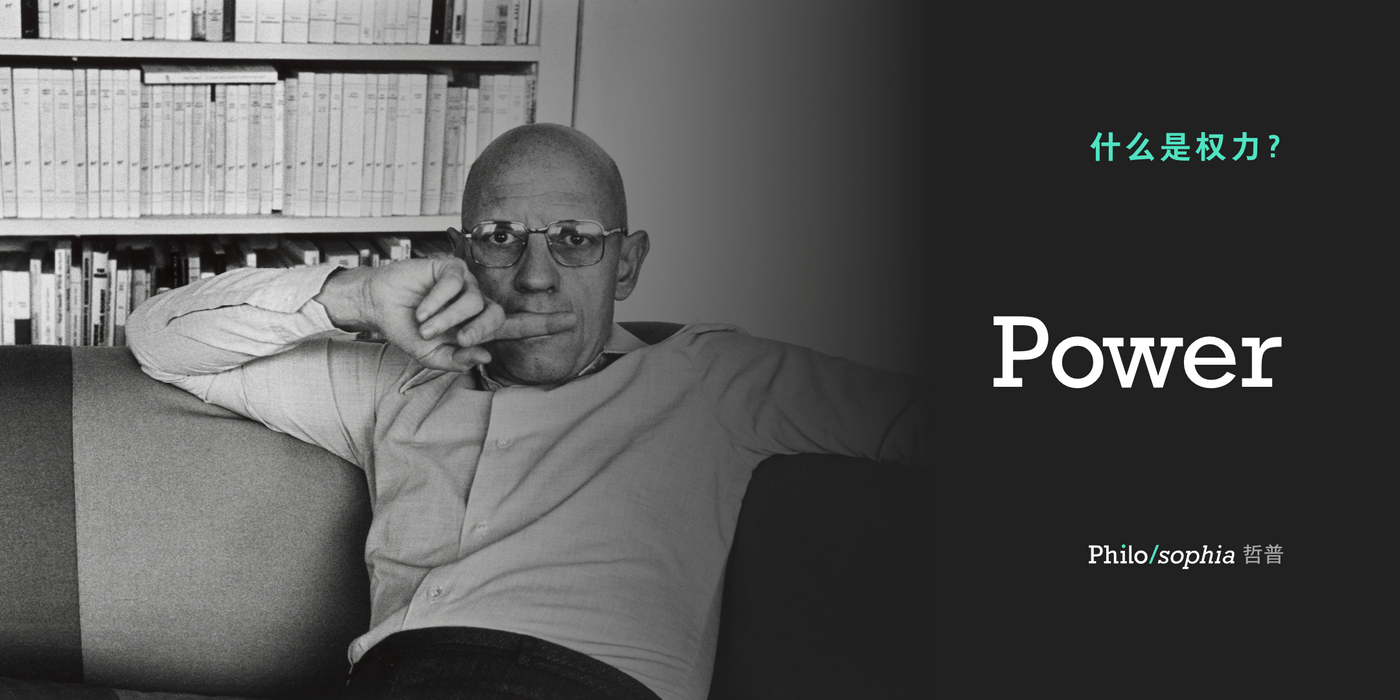
Author / Zhu Xuexian (reprinted with permission from Zhihu , the original text was published on our WeChat public account)

The issue of power has always been the core issue of political philosophy , so that philosophers of all dynasties have been actively exploring this issue. A group of philosophers such as Hobbes, Locke, Rousseau and other philosophers have put forward the idea of contract theory that supports modern Western democratic politics. .
Hobbes believed that in the "state of nature", due to human self-interest, everyone would take all means (including war) to save themselves, thus making people in an ugly "war of all against all". , barbarism, from which men finally realize that peace and self-defense are attained by contract, which is "to entrust all the power and strength of all to one man, or to one who can pass the opinion of the majority. Turn everyone's will into a collective of many wills". [1] That is to say, people obtain their own interests by transferring their power to the monarch or parliament, and the monarch or parliament with power governs people, so that the state is born, which is the political power Origin and legitimacy provide the description of legal contracts, and the establishment of political power is just a legal transaction that follows the law of the contract transfer category. Even when later philosophers such as Locke and Rousseau designed the state and political institutions, their focus was still on the relationship between the source of power and the basic rights of social citizens, and the method borrowed was Hobbes' contract theory Thought.
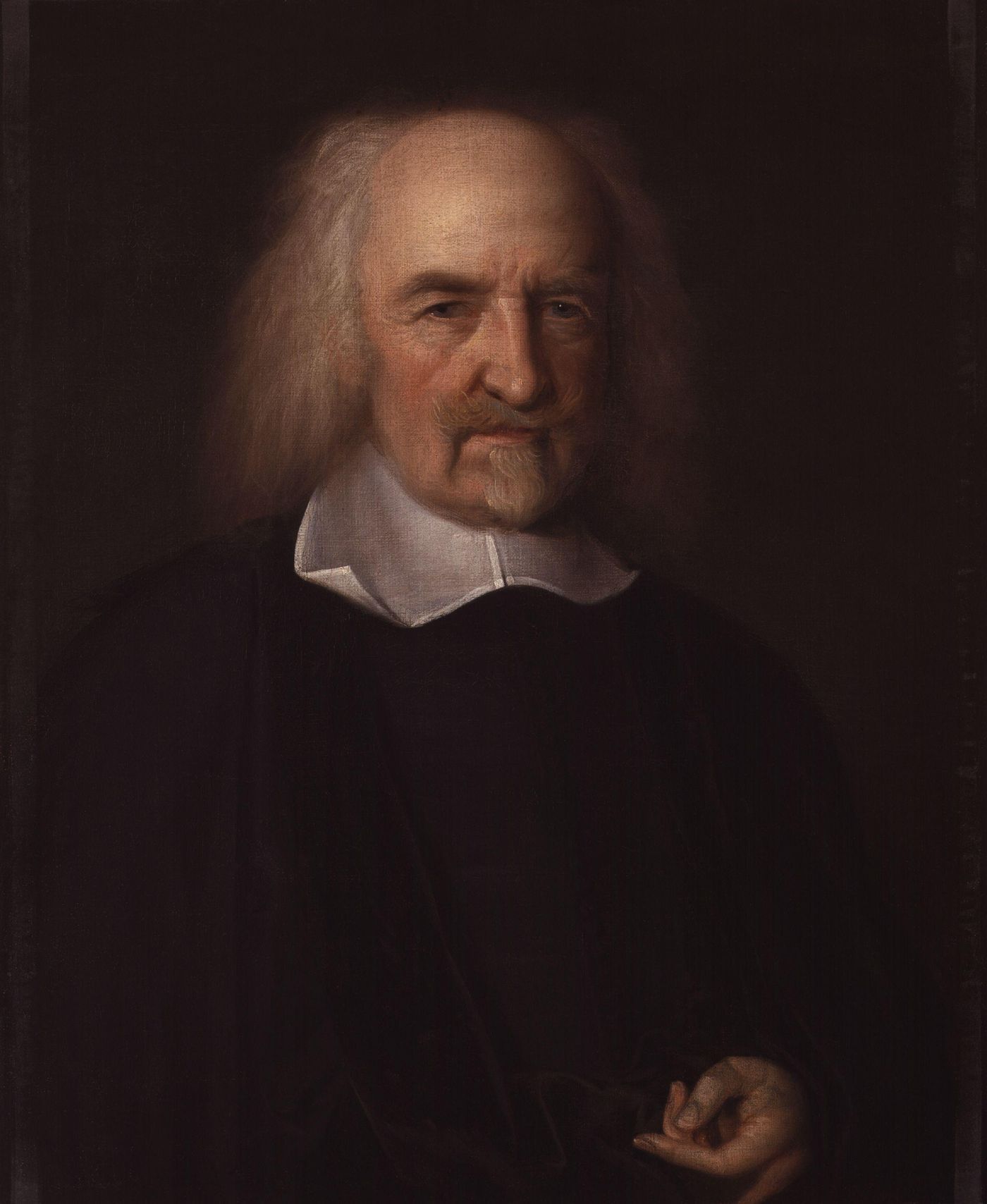
In addition to the legalist model represented by Hobbes, Locke, Rousseau, etc., which occupies the mainstream position in the West, there is another theory about power, that is, the Marxist "economic functional" theory.
In the mid-19th century, when Marx constructed his own theories on society, politics, and economy, he made a deep critique of the popular contract theory in Western society. Marx believed that the natural law school made up the theoretical premise of "state of nature" when discussing the issue of the origin of the state, and borrowed some viewpoints from the abstract theory of human nature in traditional culture , and the construction of its entire theory did not break away from the stereotype of traditional metaphysics. , is a typical manifestation of speculative historical idealism. According to Marx's view, power is a tool of class struggle, a means of oppression and exploitation of other classes by the economically dominant class, and other classes can also use class struggle, etc. Overthrow the ruling class by means of overthrowing the ruling class, thus rising to the ruling class, mastering the power of the state, and using power to safeguard its own economic interests and various interests derived from economic interests. Obviously, in Marxist economic theory, the “power” that belongs to the category of superstructure, “the fundamental purpose is to serve the economic base, it is a tool to maintain production relations, and its function is mainly to maintain production relations and the development and specificity of production relations. class domination through form". [2]

But it is Foucault who has really made the most systematic and profound exposition of modern power.
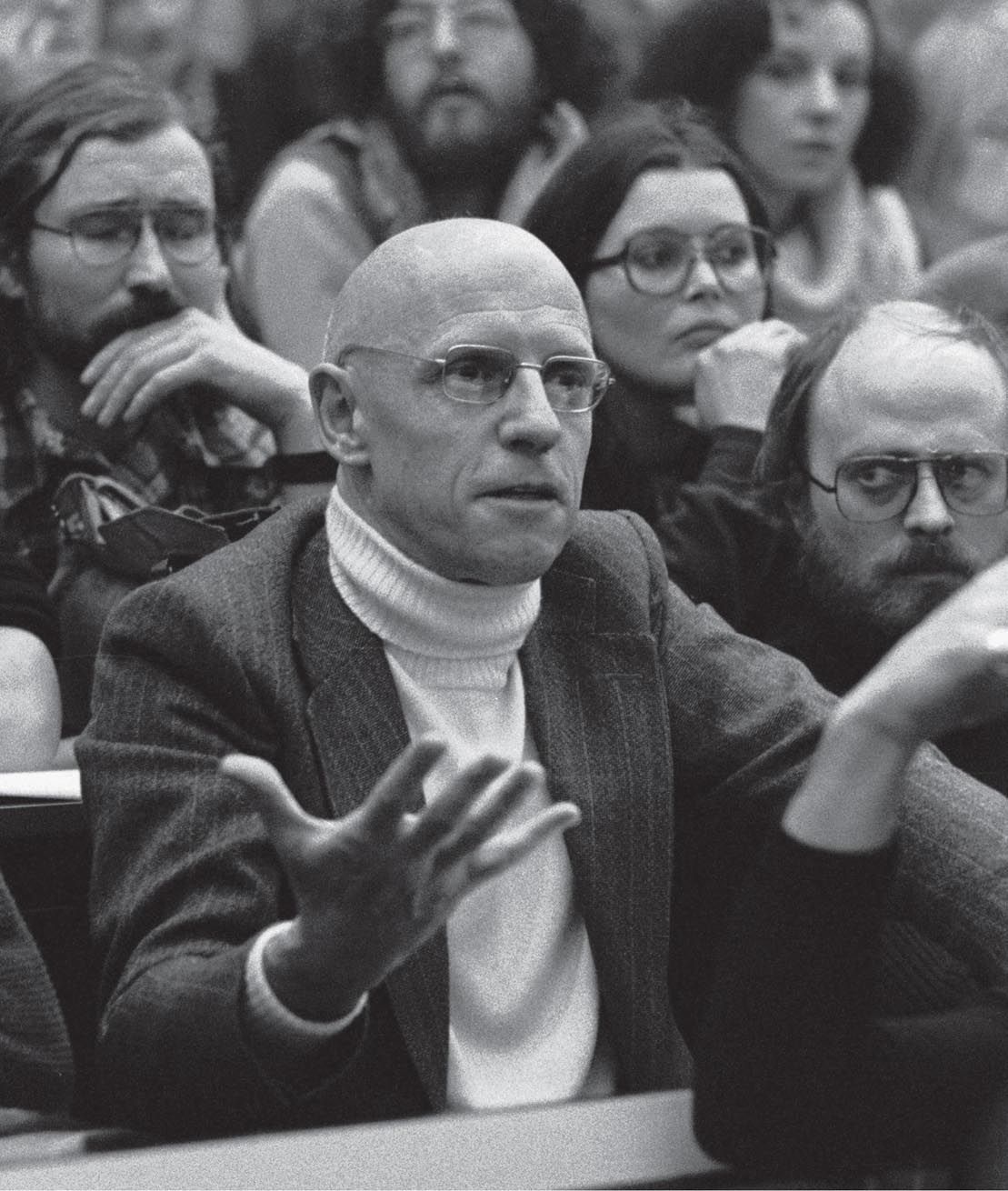
Foucault believes that although Marxists have reasonable criticisms of contract theory, they attribute complex power issues to a single economic problem, and replace the agent of the subject of "law" in contract theory—the monarch with economic power. The dominant ruling class in China is essentially a simplistic treatment of complex power issues.
Foucault believes that the legal model of power and the Marxist economic model have many things in common.
- Economism in Power Theory. "There is something in common between legal concepts . . . and Marxist concepts . In the theory of legal rights, political power finds its formalized model in the exchange process in the economy of commodity circulation; in Marxist economic theory, political power finds the reason for its historical existence in the economy, the principle of its specific form and actual functioning.”[4]
- Both the legal model of power and the Marxist economic model have implicit assumptions of dominion. Both theories build power around a center , the sovereign. The monarch or ruling class at the top of the pyramid has power, while the enslaved subjects or the ruled class have no power. The monarch or ruling class moves from the center of power. The purpose of the law is to demonstrate the legitimacy of the rule, maintain the rule of the rule, and prohibit and exclude behaviors that are harmful to the rule. .
The analysis of power from the point of view of dominance in the classical theory of legal rights constructs a theoretical cycle of three aspects.
- The cycle from subject to subject. This theory first describes the subject as an individual with natural powers and abilities, and then constructs the subject as an enslaved molecule in power relations.
- Cycle of singular and plural powers. When the theory of sovereign power is constructed, it is faced with various complex powers. These powers are not only political powers, but also non-political powers such as various capacities, possibilities and forces, so there must be a fundamental unity of power. , can construct power in the sense of political terminology, and only when complex and diverse powers are said to be political powers, can they be established and operated only from the unity of power established by the theory of sovereign power.
- The cycle of legitimacy and law. Sovereignty is constructed to show that it does not rely on law, but seeks a rationality deeper than law that gives all law its rationality and makes it function as law.
Correspondingly, this three-sided theory of circulation has its triple prerequisites, "subjects to be enslaved, unity of power to be established, and legitimacy to be observed". [5]
Clearly, in both theories, the analysis of power is within the confines of the state, and power is identified as something repressive. This power analysis mode determines that "whether in overall decision-making or in the small intervention of power, no matter what the mechanism and system on which power depends, power is always integrated, and from top to bottom with a unified and It works on a large scale". [6] In this regard, Foucault criticized: "If we are talking about power, if we only associate it with the law and the constitution, or the state and the state apparatus, then the question of power will be impoverished. power is very different from law and the state apparatus, and it is more complex, dense, and permeable than the latter. ”[7]


Foucault discovered through his studies of clinics, prisons, and mental institutions that power is far from what traditional theories describe: power changed during the classical period until the 19th century, and the old theories did not provide any new explanation for it . With the emergence of capitalist society, the way of power over people has become more sophisticated, no longer using violence as the main means of domination, but through discipline, so that people consciously obey discipline and tame themselves, thereby Become a requester in line with social norms, and act as a part of the social machine. Therefore, power is no longer just a simple role of repression, repression, control and reproduction, it has a more positive side.
Michel Foucault:
What I think was established in the 18th century is a power that is not actually repressive, but productive—repression here is only a secondary role on the side, secondary to those who are central to this power. The mechanism of making; the mechanism of making, the mechanism of creating, the mechanism of producing. [8]
The disappearance of this negative repression or repressive power is an inevitable consequence of the establishment of a capitalist society with the disappearance of the monarchy. Domination mode can no longer be implemented under the new environmental conditions. They recognized urgently that "a new technique must be invented to ensure the unhindered flow of power, from the whole social organism down to the smallest components of this society". [9]
This newly invented mechanism of power is disciplinary power.
The classical legal model and the Marxist economic model regard power as something similar to a commodity, which can be possessed by certain classes, individuals, and groups, and these individuals or groups can govern others from the center of power. Foucault argues, however, that this "property" postulate is not suitable for analyzing power. He pointed out, “Power is not something that is acquired, possessed or shared, something we hold or allow to slip away, it operates from a myriad of directions in the interplay of asymmetric and shifting relationships on". [10] Power is produced in various interactive power relations anytime and anywhere. Obviously, such power relations are all kinds of power relations, but this kind of relationship is not a kind of relationship between the ruler and the ruled. Simple linear binary opposition relationship, it is also outside of various relationships, and plays a role in manipulating various other forms of relationships. On the contrary, it is inherent in various forms, such as economic processes, epistemic relationships (knowledge), sexual relationships and many more.
That is to say, on the one hand, power is diffused everywhere and penetrates into every corner of society. It is entwined with various social relations and cannot exist without society. At the same time, in the intricate network of relations in modern society, power relations are all It is an extremely important configuration, and the operation of society is inseparable from the operation of power. "Power operates in a network in which individuals not only flow, but they are always in a position of obedience and simultaneously exercising power". [11]
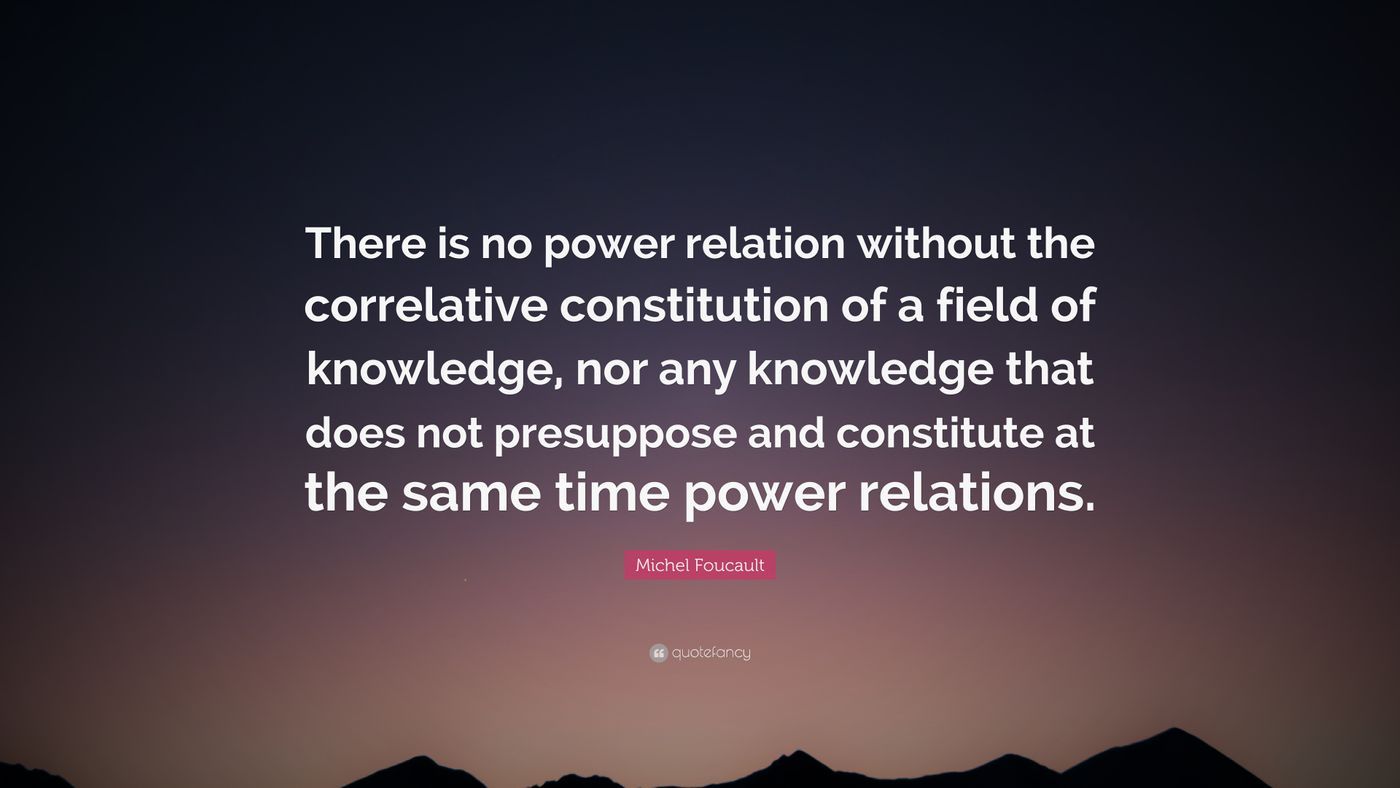
Such power obviously does not emanate from a single supreme center, but is diffused everywhere, running through all institutions and institutions, but it is not equal to any institution or institution, "the state itself is only an overall effect, or constitutes 'power' The result of multiplicity of gears and focal points at different levels in microphysics”[12], therefore, the state apparatus is nothing but the ultimate form of power, and power relations are dynamic, reversible, and unstable.
The so-called dynamic, reversible, unstable, refers to "power relations are not abstract and static, but formed and existing in the action of struggle."[13] This means that power is not the product of contract, nor does it It means giving up certain freedoms, let alone the transfer of something that everyone is born with, but the actual operation of power depends on the struggle and competition between people, which is "something". The actions of some act upon the actions of others.” [14] Such power, there is “innumerable points of confrontation, unstable gatherings, each containing conflict, struggle and at least a crisis of temporary reversal of the relations of power” . [15]
Power operates through the individual it constructs, and when an individual resists power, it also initiates through the point of action of power on him. Such power emerges everywhere, without a top-down central point, but a central point. The surging of a "living" web of power is a web of relationships that is always in tension Power relations, such as sexual relations, the power exercised by men in the marriage system in traditional society, in economic activities, in cognitive activities, in daily life, and so on, are all full of different forms of power relations. Diverse power relations do not simply boil down to something as simple as "repression," but "the name of a complex strategic situation." [16]
The composition of the intricate network of power relations is the result of the interaction of various forces, and the interaction of various forces is essentially the manifestation of various competitions and battles. In order to expand and enhance the form of existence that individuals must have, in order to achieve a certain effect and purpose, they will inevitably use various strategies, tactics, and measures, but each individual is still subject to the entire power game operation mechanism to a certain extent. Because "the game of power as a whole ... is largely the result of the contest of power between the subjects in the game of power"[17] , it is beyond the behavior of any individual individual, such a game of power as a whole As an interconnected whole, any one of them can neither completely control the change of its own power, nor the change of the power of other parties, which leads to the extreme instability of the entire network of power relations.

The object of disciplinary power is the body, and it exercises and trains the body with the main goal of producing a docile and useful body. Of course, the body is the object of strict control of power in any society, but the strategies of power to treat the body are different in different periods. During the reign of kings, the rulers only know how to destroy, torture, and damage the body of the ruled. They did not realize the usefulness of the body. With the advent of Western capitalist society, the cruel punishment rituals were gradually replaced by "civilized" and "rational" disciplinary methods, and punishment became a "political economy" about the body. ”, the benevolent methods of confinement and upbringing are ultimately always concerned with the flesh, that is, “the flesh and its powers, their availability and tameness, their arrangement and conquest”. [18]
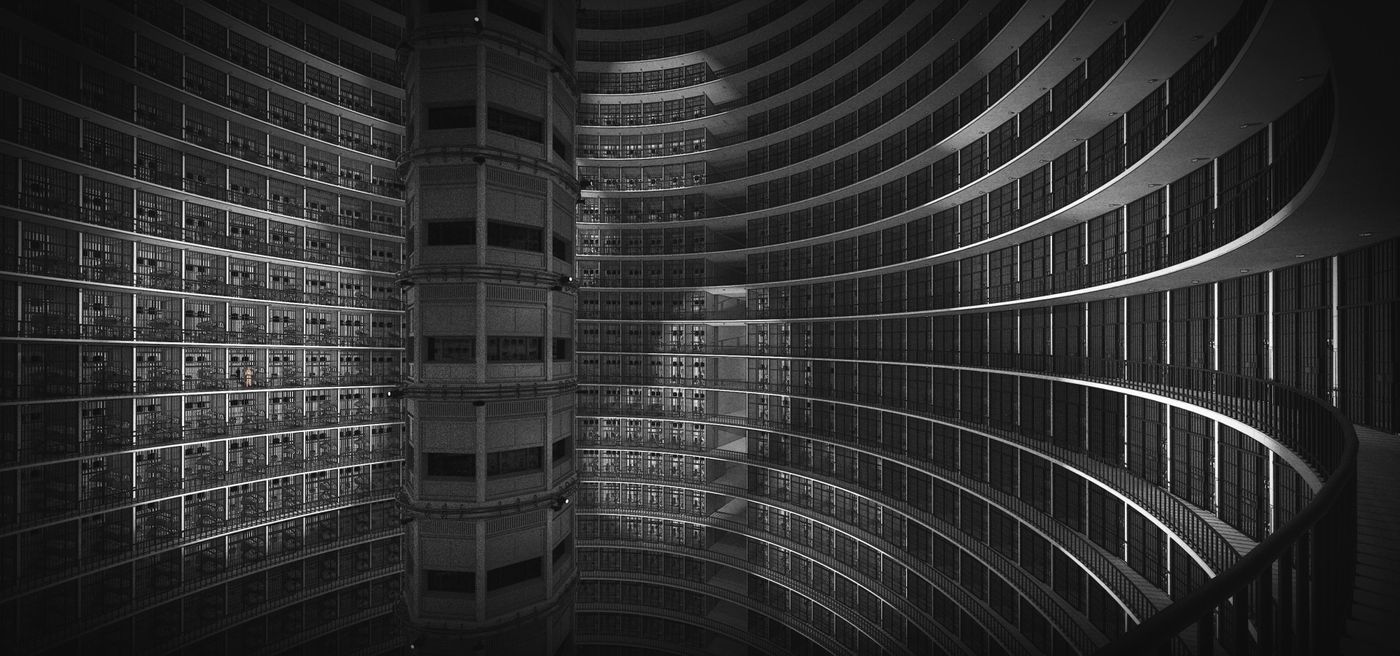
Achieving effective control over the body and its powers, obtaining more economic benefits, and making it more docile requires an "knowledge" of the body, "but not exactly the science of the functioning of the body; there may be The control of the power of the body, but not only the ability to conquer them”[19], this kind of knowledge and control of the body can be called the political technology and political anatomy of the body. This kind of technology focuses on the minutiae. The body is required to adapt to very subtle operating mechanisms, such as the careful choreography of the human body's posture and behavior, how long a certain part of the body should be held at a certain height and a certain posture. How should time and space be reasonably divided, so that each individual can be continuously monitored to ensure that the body operates according to the established procedures, or through the division of space, the power of the body can be maximized, etc. The trivial details provide the fulcrum of the operation of power, and at the same time, these subtleties also clearly expose the true mechanism of the operation of power.
When Foucault inspected the military system, large factories, and Goblanes schools in the 17th and 18th centuries, he found the importance of "discipline" in these fields. It is no longer the kind of passive maintenance order in the past. It has four significant changes.
- Artisticization of space allocation. Hierarchical division of a closed space, so that each individual is in its own unique position, and each individual can flow in a fixed relational network. Characteristic description, and can organize the entire complex event;
- Control over activities. The body is carefully controlled by time, so that every movement of the body is carried out according to the time regulation, and in order to keep the whole body in the best posture to achieve the purpose of maximizing efficiency, every part of the body must follow the established rules. do it in posture, so as to construct the most productive body;
- Creation plan. It is mainly to arrange exercises suitable for each person according to his unique level, ability and level, so that it can be carried out step by step;
- Orchestration of power. Individual bodies can work together through the construction of mechanisms, that is, through the organization of individual forces, to form a highly efficient mechanism.

In general, in these four disciplines of the body, an individual is created with four characteristics: unitary (caused by the method of space allocation), organic (through the arrangement of activities), Generative (through the accumulation of time), assemblage (through the orchestration of forces). [20]
Disciplinary power operates in a "hidden" way, but it objectifies by imposing visibility on the disciplinary object. This objectification is achieved through inspection, which on the one hand treats each individual as an object that can be analyzed and described to form inspection data about the individual, and on the other hand places the individual in the overall system for comparison and establishes the individual's visibility, Allow individual differences to be recognized.
Power is like a network. Power is non-private and public. No group or individual can take it as its own. It is widely distributed in the power network of various social scenes, even the network of daily life. The network is intertwined, and the movement in this network can become the protagonist of power control, and can also become the protagonist to realize power. Power should not be specialized, but should be “a network of relations that is always in motion” [21]. In this way, power is no longer seen as a machine, but as a differentiated and diverse technology in everyday life, the capillaries of movement in every life through endless connections and penetrations.
Power is anonymous and centerless, and the key is to weaken who (subject) exercises power, not who (subject) controls power. Power is not bound by the subject, and power can be regarded as an internal mechanism. In fact, as long as any subject uses it, the power effect will take effect. It can be seen from this that power is anonymous, impersonal, and non-subjective. The stronger the impersonality and anonymity, the stronger the power effect. This impersonal and anonymous power is also very economical. Abandoning the thick coat, abandoning many management mechanisms and costs, it is simple and effective, implementing effective supervision, this is a simple and complex long-term control method, and this solution can also minimize the use of Cost: "It's a self-casting mechanism that doesn't make a fuss, has a knock-on effect, and doesn't require any foundation to work directly on the individual."
references:
[1] Hobbes' Leviathan, Commercial Press, p. 137; [2] Liu Jun, "From Macroscopic Domination Power to Microscopic Disciplinary Power: A Contemporary Dialogue between Marx and Foucault's Theory of Power" Jianghai Academic Journal 67~71 p. Foucault's "Society Must Be Defended" Shanghai People's Publishing House, p. 33; [6] Han Ping, "Disciplinary Power" and the Law, Jilin University, p. 54; [7] Michel Foucault, "The Eyes of Power—Future "Interview with Ke" Shanghai People's Publishing House, p. 161; [8] Michel Foucault, "The Abnormal," Shanghai People's Publishing House, p. 53 [9] Michel Foucault, "The Eyes of Power - An Interview with Foucault" "Shanghai People's Press, 159 pages; [10] Michel Foucault "The History of Sexuality" New York: Pantheon Books, 94 pages; [11] Michel Foucault, "The Society Must Be Defended" Shanghai People's Publishing House, 22 pages; [12] Deleuze, Deleuze on Foucault, Jiangsu Education Press, p. 27; [13] Gao Yang, Foucault's Aesthetics of Existence, Renmin University of China Press, p. 169; Ⅲ" Peking University Press, p. 132; [15] Deleuze, "Deleuze on Foucault", Jiangsu Education Press, p. 26; [16] Michel Foucault, "History of Sexual Experience", Shanghai People's Publishing House, p. 61 ;[17] Gao Xuan Yang, "Foucault's Aesthetics of Existence", Renmin University of China Press, p. 171; [18] Michel Foucault, "Discipline and Punishment" Beijing: Life, Reading, Xinzhi Sanlian Publishing House, p. 27; [19] ] Michel Foucault, Discipline and Punishment, Beijing: Life, Reading, Xinzhi Sanlian Publishing House, p. 28; [20] Michel Foucault, Discipline and Punishment, Beijing: Life, Reading, Xinzhi Sanlian Publishing House, 188 Pages; [21] J. Danaher, T. Schirato, J. Weber, "Understanding Michel Foucault", Baihua Literature and Art Publishing House; [22] Chen Binghui, "Michel Foucault's View of Power ", Journal of Xiamen University

Like my work? Don't forget to support and clap, let me know that you are with me on the road of creation. Keep this enthusiasm together!

- Author
- More